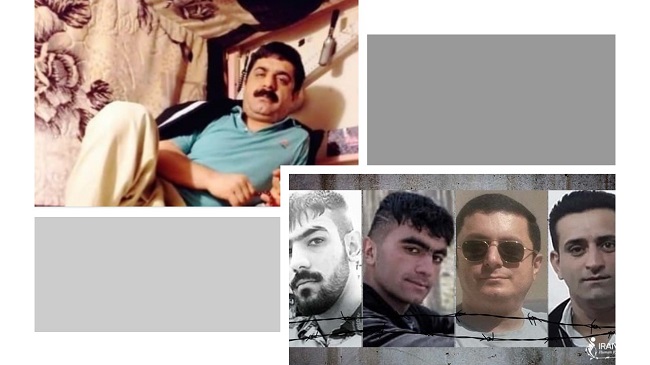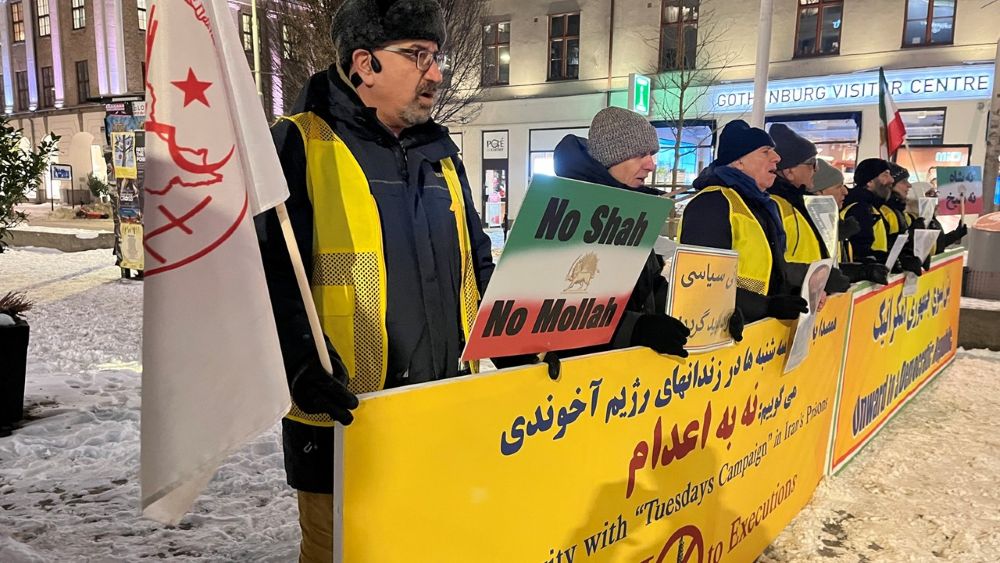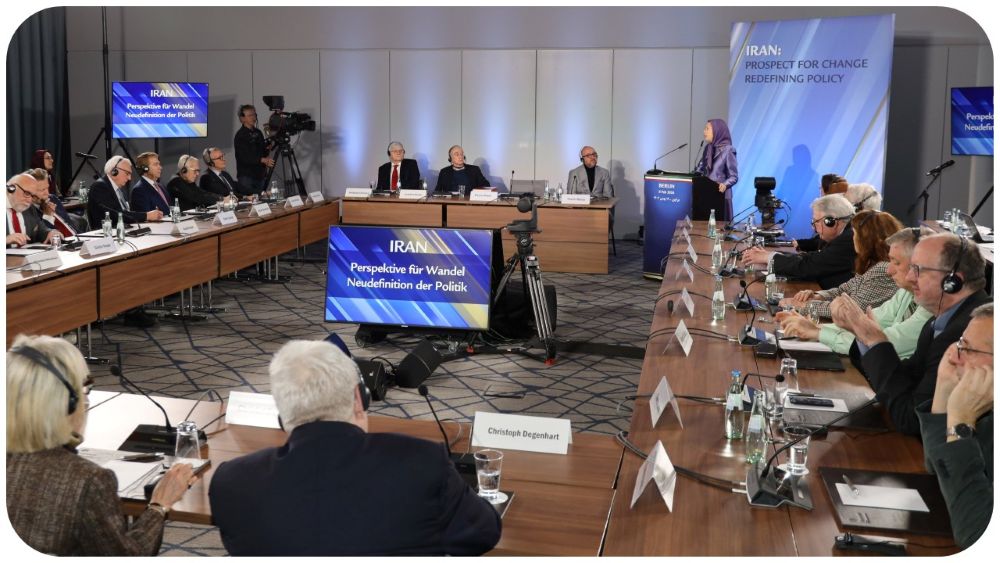During the month of September, the Iranian regime has continued to inflict its severe repression of Iranian citizens with reports of tortures, arrests and executions continuing to take place across the country.
Monthly Report September 2021, Iran Human Rights Monitor #Iran #HumanRights https://t.co/nd4A4kETpA
— IRAN HRM (@IranHrm) October 1, 2021
Executions
In September, at least 38 death sentences were carried out in Iranian prisons. At least 12 executions were carried out for drug-related offenses, and 21 were carried out for murder. Three women are among those executed.
Iran has the highest rate of executions per capita in the world.
In regard to prisoners, at least four reported to have been killed under torture. The four prisoners were identified as Hadi Attarzadeh, Shahin Naseri, Yasser Mangouri and Amir Hossein Hatami.
Zeinab Parnin, the mother of Amir Hossein Hatami, killed under torture, calls on everyone to protest the murder of her son to prevent the killing of their own children. She says he was innocent, following up on his car's documents when he got arrested #Iran #HumanRightsViolations pic.twitter.com/KYAnnhR6yS
— IRAN HRM (@IranHrm) September 27, 2021
On September 29, Iranian authorities executed a prisoner who had been on death-row for 20 years on drug related charges. The death sentence of Abbasgholi Salehi, 42, was carried out in Dastgerd Prison of Isfahan, central Iran.
Abbasgholi Salehi, 42, who was in prison for 20 years on drug-related charges, was executed today in Dastgerd Prison in Isfahan, central #Iran.#HumanRights pic.twitter.com/Yjrayr8jdD
— IRAN HRM (@IranHrm) September 29, 2021
Sep 30—Isfahan, central #Iran
— IRAN HRM (@IranHrm) September 30, 2021
A video from the funeral of Abbas-Gholi Salehi, a 42-year-old prisoner who spent more than 20 years in prison and was executed yesterday on drug charges.
A cellmate said his drug-related charges were lifted, but he was still hanged.#HumanRights pic.twitter.com/oeDZPyq9t6
Torture
Iran Human Rights Monitor (Iran HRM) said, “Torture and inhumane treatment of detainees and prisoners by agents has always been one of the most serious violations of human rights in Iran.”
One of the forms of torture used by the regime is flogging. Esmail Gerami, a worker activist, aged 62, was sentenced to 74 lashes, a five-year prison term and a fine of 2 million tomans ($72) on September 18 after being arrested in March for participating in nationwide protests as the regime tried to repress the activists’ freedom of expression.
Not even human rights lawyers can escape the brutality of the regime. Arash Keykhosravi and Mostafa Nili were arrested as they prepared to sue state officials for their deadly response to the Covid-19 pandemic, accused with ‘disrupting order’. Both men are currently detained in Evin prison.
Religious and ethnic minorities
Another feature of the regime’s crackdowns during September was the continued persecution of religious and ethnic minorities in Iran.
Baha’is
Baha’i citizen Haideh Mosali Nejad, and her son Mehran had their home raided on September 22 by security forces, who confiscated some of her personal belongings. A day later, both Haideh and Mehran were arrested and detained in Shiraz.
On the same day, another Baha’i woman, Sheida Taeed, had her home in Ghaemshahr raided, with security forces confiscating her mobile phone, books and photos. She was arrested and taken to an unknown location.
Soroush Abadi and Kiana Shoaei, both Baha’i citizens from Shiraz, were each sentenced to 3 years and 3 months in prison and were given a 2-year ban from leaving Iran.
Christians
Iran HRM said, “Three Christian converts were detained by security forces on September 12 in Rasht, northern Iran. They were identified as 25-year-old Ahmad Sarparast, 28-year-old Ayoub Pourrezazadeh, and 38-year-old Morteza Hajeb. The three were transferred to an unknown location.”
Sarparast and Pourrezazadeh were arrested and detained in a home church, while security forces thoroughly searched the building, confiscating mobile phones, flash drives and religious books. No warrant was produced to either arrest the men or to enter the property, and the men were treated with violent and offensive behavior.
The relatives of Sarparast, Pourrezazadeh and Hajeb were later threatened by security officials to provide information about the men to the Islamic Revolutionary Guard Corps (IRGC), and along with other members of the church, they were summoned to be interrogated at the IRGC Intelligence Office in Rasht.
Prisoners’ conditions
The treatment of Iranian prisoners in the country’s prisons has once again come to light. Retrials for three men who were arrested for taking part in the November 2019 uprisings have been postponed four times. Amir Hossein Moradi, Saeed Tamjidi and Mohammad Rajabi were previously sentenced to death, but due to the postponed retrials, the men have been kept in limbo in prison in Tehran. Moradi is currently in a critical condition due to bad health, but has denied much-needed medical leave.
Arbitrary killings
Reports have also revealed that at least 13 civilians were killed by the regime’s military and armed forces during the past month. These civilians include fuel traders from the province of Sistan and Baluchestan, as well as Kurdish porters.
Iran HRM said, “At least 8 civilians were injured and wounded as a result of indiscriminate shootings by state forces last month.”




